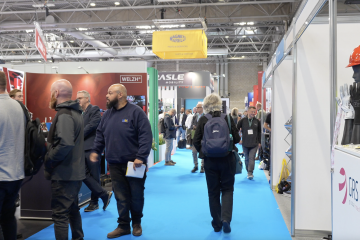The Competitions and Markets Authority (CMA) has launched a consultation on draft guidance to accompany the new Motor Vehicles Block Exemption Order (MVBEO) with responses due by 16th May at 5pm.
The move follows on from the CMA’s final recommendation to the Secretary of State at the Department for Business, Energy and Industrial Strategy regarding the retained Motor Vehicle Block Exemption Regulation (MVBER), which was carried over following Brexit, but expires this month.
Existing legislation supports the abilities of independent operators in the automotive aftermarket to provide competitive service offers. This legislation includes Europe’s Motor Vehicle Block Exemption Regulation that provides the basis in competition law for workshops (both those contracted to vehicle manufacturers and independent operators) to access the same tools, equipment, technical training and most importantly, replacement parts (both OEM and ‘matching quality’ parts) to provide competing service offers.
This is complemented by the vehicle type approval Regulations that include the detailed ‘repair and maintenance’ (RMI) requirements, but that need to provide additional technical requirements, frameworks, ‘updates to technical progress’ and revised definitions.
However, and most importantly, both the Motor Vehicle Block Exemption Order and the type approval regulations require secondary legislation to describe these technical requirements in detail, not only to clarify the obligations of a vehicle manufacturer under competition law (MVBEO), but also as the basis for the self-declaration of conformity as part of a vehicle’s original type approval.
Motor Vehicle Block Exemption guidance needed
The Competition Act 1998 prohibits agreements between businesses that restrict competition in the UK (unless they meet the conditions for exemption in section 9(1) of the Competition Act or are otherwise excluded). This is known as the Chapter I prohibition.
An agreement is exempt from the Chapter I prohibition if it creates sufficient efficiencies and benefits to outweigh any anti-competitive effects. A ‘block exemption’ regulation automatically exempts agreements of a certain category from the Chapter I prohibition if the agreement satisfies the conditions set out in the block exemption regulation. In this way, a ‘block exemption’ regulation provides legal certainty for businesses.
The primary purpose of the Motor Vehicle Block Exemption Order guidance under consultation is to explain how the CMA applies the Chapter I prohibition to motor vehicle aftermarket agreements, such as vertical agreements relating to the purchase, sale or resale of aftermarket goods for motor vehicles, and to the provision of repair and maintenance services. In particular, it describes the application of the proposed Motor Vehicle Block Exemption Order to motor vehicle aftermarket agreements while also covering some aspects relating to the sale and purchase of vehicles.
Mark Field, IAAF Chief Executive, commeted: “A vehicle is now an ‘IT system on wheels’, with the vehicle manufacturer as ‘system administrator’ with the corresponding ability to control all aspects of access, functions and data to all their competitors. Without robust and detailed legislation to define the technical requirements, it will simply allow the vehicle manufacturers to dominate and control the market, including the significant distortion of the abilities of competing vehicle-related service and mobility service providers.”
Technology changes create new approaches
Since the Motor Vehicle Block Exemption Order and type approval RMI legislation has been in place, vehicle design and technology has changed significantly and has led to not only the vehicle manufacturers entering the aftermarket as service providers in their own right, but with the vehicle manufacturer controlling the remote access to their vehicles, existing business models have significantly evolved, and new business models are being implemented.
However, although the secondary legislation is being revised in Europe to reflect these technical requirements and the important aspects that need to be addressed to ensure that equal abilities to develop and implement competing services remain possible, this must also be done in Great Britain to avoid regulatory divergence with the EU and Northern Ireland, who will follow the EU requirements as part of the Windsor framework and the rest of Great Britain.
Today’s vehicles are highly sophisticated and contain new systems and interfaces that are used to access the vehicle, its resources, functions and data (e.g. telematics that provides remote access to a vehicle). This also creates the need to have (cyber) secure vehicles, which IAAF & UK AFCAR fully supports, but legislation must ensure that this is not used by vehicle manufacturers to impose a monopoly to control all aspects of the diagnosis, service and repair of the vehicle. There is already significant and increasing evidence of ‘abuse of dominant position’ and the arbitrary implementation of the ‘rights and roles’ of restricted access to the vehicle and its data by vehicle manufacturers, despite the existence of the retained Motor Vehicle Block Exemption Regulation.
The IAAF & UK AFCAR are working hard to ensure consumer choice through effective competition is protected to ensure freedom of service and repair for both motorists and independent automotive aftermarket.
The consultation on Motor Vehicle Block Exemption Order closes on 16th May at 5pm. You can find more details here.



